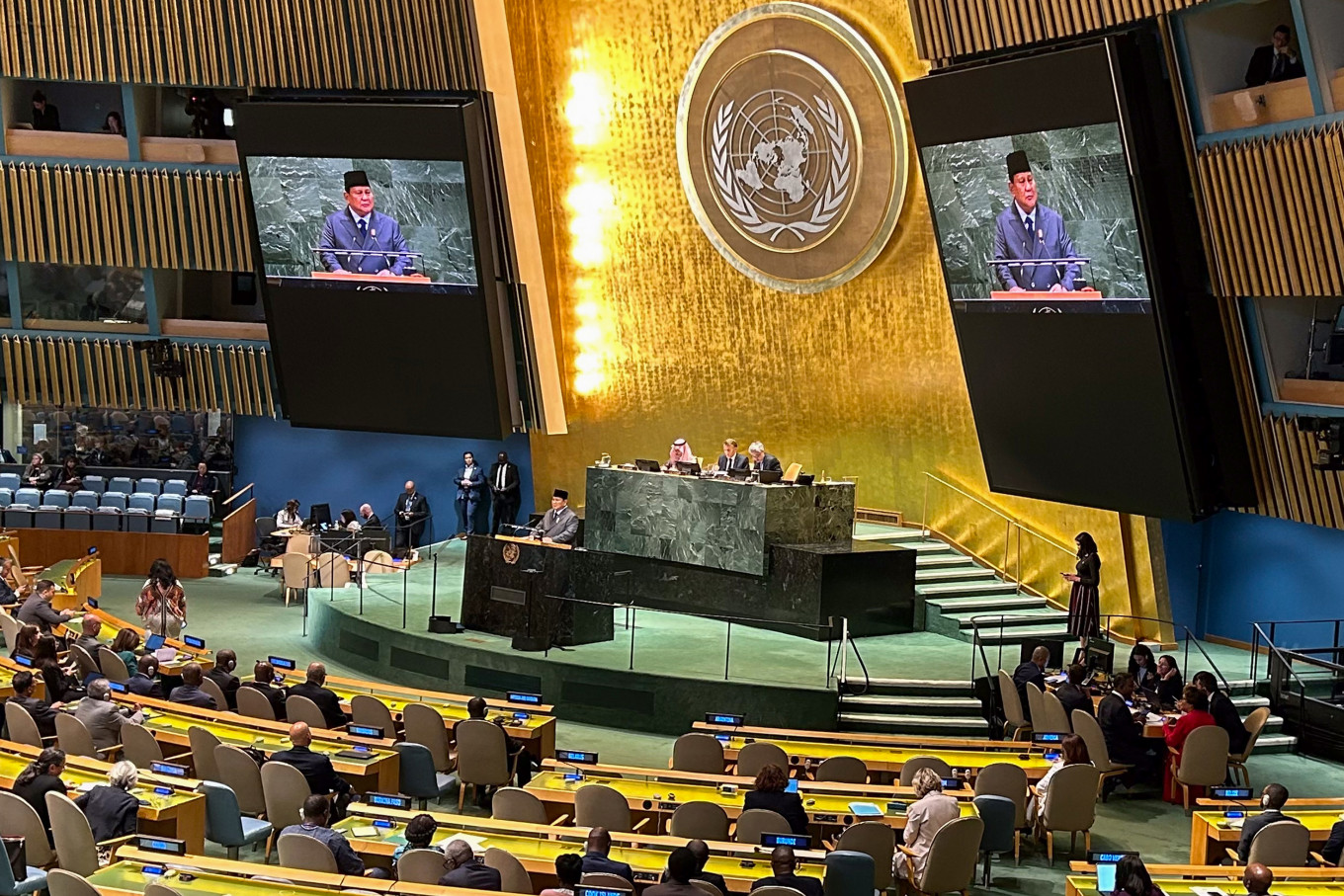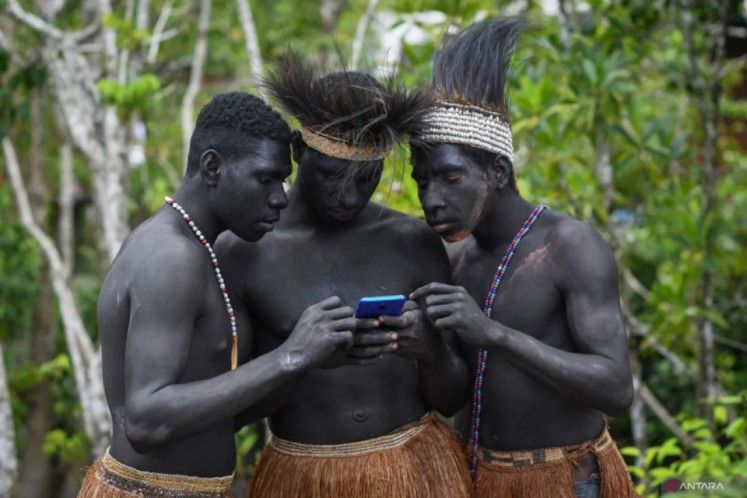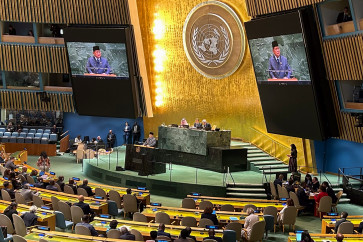Popular Reads
Top Results
Can't find what you're looking for?
View all search resultsPopular Reads
Top Results
Can't find what you're looking for?
View all search resultsRecognition of Palestine and the distance to reality
In the UN General Assembly, Palestine may win overwhelming support. In the Security Council, one raised hand is enough to block it.
Change text size
Gift Premium Articles
to Anyone
 Peace push: President Prabowo Subianto (on podium) delivers his views at the High-Level International Conference on a peaceful settlement of the Palestinian issue and the implementation of the two-state solution on Sept. 22, 2025, at the United Nations headquarters in New York. President Prabowo reaffirmed Indonesia’s support for the New York Declaration, which recognizes the two-state solution as the only path toward lasting peace between Palestine and Israel. (Antara/Kuntum Khaira Riswan)
Peace push: President Prabowo Subianto (on podium) delivers his views at the High-Level International Conference on a peaceful settlement of the Palestinian issue and the implementation of the two-state solution on Sept. 22, 2025, at the United Nations headquarters in New York. President Prabowo reaffirmed Indonesia’s support for the New York Declaration, which recognizes the two-state solution as the only path toward lasting peace between Palestine and Israel. (Antara/Kuntum Khaira Riswan)
P
alestine has long existed in a strange half-light: a name spoken, a cause embraced, a homeland imagined — but not yet a state with secure borders and unshaken lives. For decades it has been there and not there at once: in speeches, in memories, in songs sung in exile, but not in the reality of passports or freedom of movement.
At the United Nations this year, the scene repeated itself. Delegates stood, hands rose, and the majority of the world’s nations affirmed what they had affirmed before: that Palestine is, and deserves to be, a state among them. In that hall, flags and applause created the appearance of inevitability. Outside, in the streets of Gaza and the hills of the West Bank, nothing moved.
It is a paradox that has lasted for generations. Recognition exists , but recognition does not protect a child walking to school under the shadow of armed soldiers. Recognition cannot shield a family when their house is marked for demolition.
What happens in New York does not easily travel to Ramallah, Khan Younis or the refugee camps scattered far beyond Palestine’s borders. The applause fades; the walls remain.
And yet it would be wrong to dismiss the gesture as nothing. Words, even when fragile, leave marks. Symbols are not bread or medicine, but they shape the way history bends. Each vote, each declaration, shifts the imagination of the world ever so slightly. When most countries affirm the same vision, it becomes harder for others to deny it indefinitely.
Legitimacy accumulates quietly, invisibly, like sediment carried by a river. It does not end the occupation, but it unsettles the narrative that occupation can last forever.
The problem, of course, is that power resists. In the UN General Assembly, Palestine may win overwhelming support. In the Security Council, one raised hand is enough to block it. The United States veto has been used again and again to silence what the majority has already spoken. Here, law collides with geopolitics. The symmetry is cruel but predictable. Recognition meets its ceiling.


















